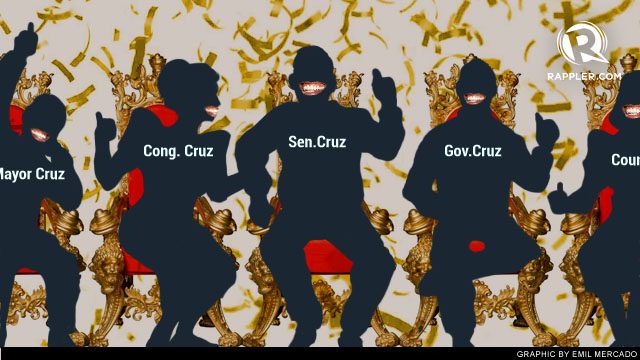SUMMARY
This is AI generated summarization, which may have errors. For context, always refer to the full article.

After 27 years of being re-filed several times, this is the first time in the history of Congress that an anti-political dynasty bill is sponsored on the floor
MANILA, Philippines – After nearly 3 decades of being stuck at committee level, the anti-political dynasty bill was sponsored before the plenary of the House of Representatives on Tuesday, May 6.
“This opens a new page in the history of our country,” Capiz Representative Fredenil Castro, chairperson of the committee on suffrage and electoral reforms, said in his sponsorship speech.
House Bill 3587 or the Act Prohibiting the Establishment of Political Dynasties seeks to prohibit relatives up to the second degree of consanguinity to hold or run for both national and local office in “successive, simultaneous, or overlapping terms.”
The proposed law, which has been pending for 27 years, also prohibits relatives from running at the same time even if they are not related to an incumbent official.
Before the bill hurdled the House committee in November 2013, Castro said it was a “permanent scrap of paper in the Congress archive” that had often times been “relegated to its eternal repose.”
In his sponsorship speech, Castro recalled the context of the crafting of the 1987 Constitution, which was created after the People Power Revolution toppled down the dictatorship of Ferdinand Marcos and brought to power Corazon Aquino, the mother of incumbent President Benigno Aquino III.
Castro said the anti-political dynasty provision in Article II, Section 26, of the Constitution represented the reformist mindset of the crafters of the charter. But Despite the inclusion of an anti-political dynastry provision, the lack of enabling law has prevented its implementation.
Article II Section 26 of the 1987 Constitution of the Philippines states: “The State shall guarantee equal access to opportunities for public service, and prohibit political dynasties as may be defined by law.”
“This provision is no less than an admission of the framers of the Constitution of the menaces that political dynasties may bring or have brought and continue to bring if unabated or unregulated by an implementing law in frustration of the spirit of Section 26, Article II of the Constitution,” Castro said.
The bill faces possible opposition in a legislative chamber dominated by political dynasties. (READ: Only 1 in 7 lawmakers are fresh faces)
Malacañang earlier said the anti-political dynasty bill was not among the priority bills of the President.
In the last Congress, Aquino, who also comes from a political dynasty, had no official stand on the measure. He said he would rather leave the decision to pass the law to Congress. – Rappler.com
Add a comment
How does this make you feel?
Loading
There are no comments yet. Add your comment to start the conversation.